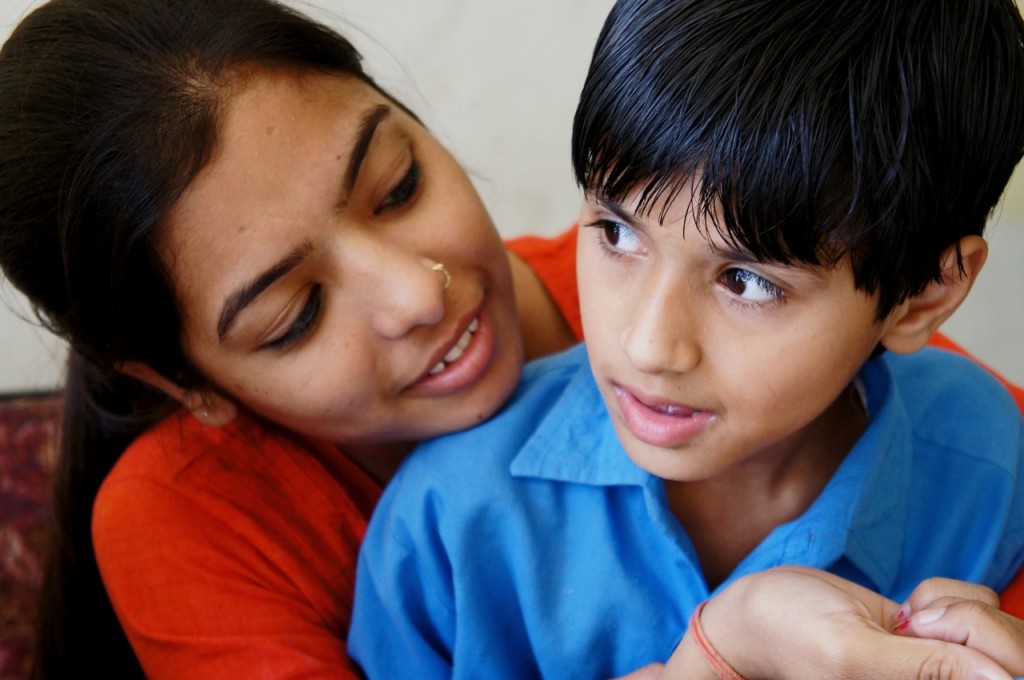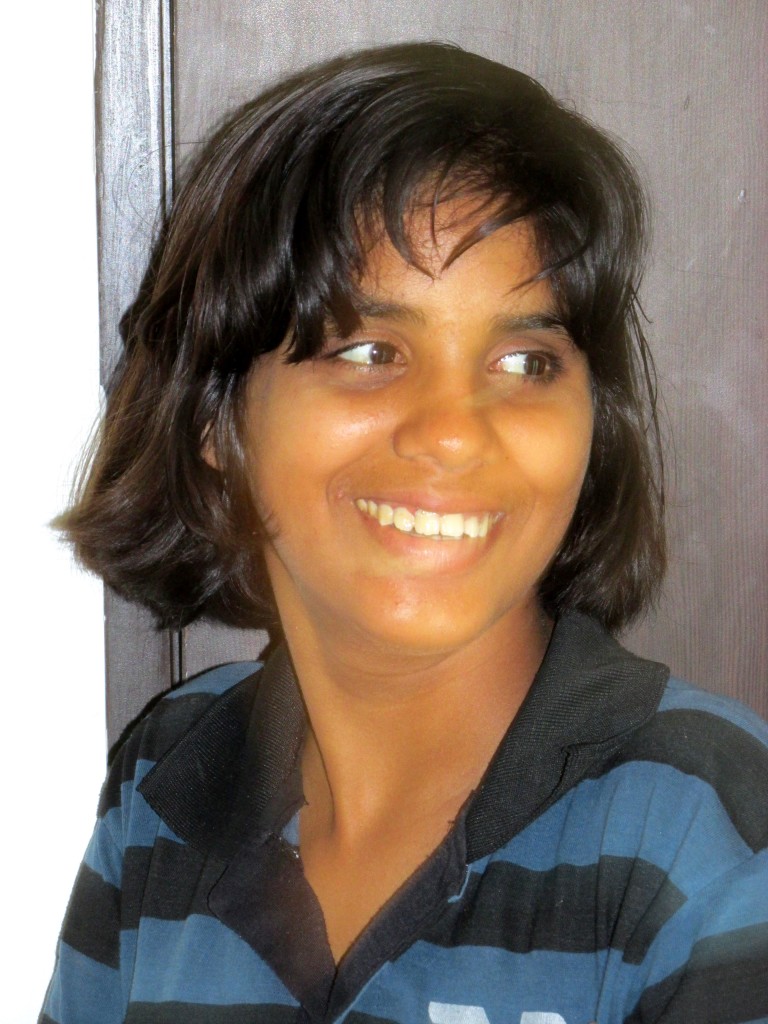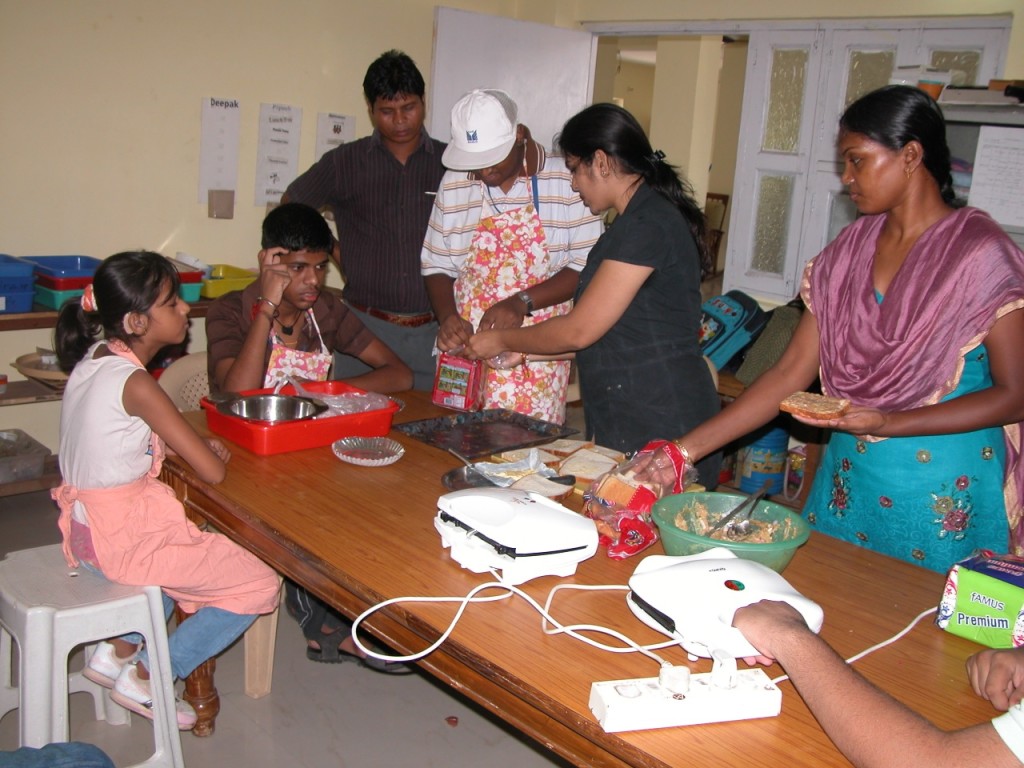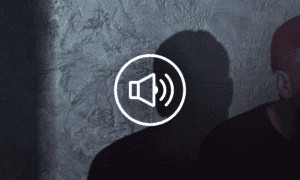Here is a case study from our partners at the Ashish Foundation who have a countercultural approach to people with differing abilities in India. Learn about the beginnings of this program here. This story comes from Geeta Mondol, the Foundation’s founding director.
About their approach
We train our staff in a truth-centered view of children and people with differing abilities. Workshops are held where we discuss how the values we hold affect the way we work–for example, if we believe that children with disabilities are also created in God’s image, we give them the dignity of knowing what is the plan for the day, where we are taking them, and we let them make decisions regarding themselves. (My son Samarpan does beautiful art. However, he does not want to be an artist; he wants to be an office assistant. As co-heir to the kingdom of God, I need to allow him the dignity of choosing his career, rather than deciding that since he is good in art, he needs to be an artist.) Self advocacy is a big part.

We also would rather cajole the child to do an activity than force a child to do an activity. We have a zero-tolerance policy for any kind of aggression toward the student. Sharing with parents how their special-needs child is valuable and can be a blessing to the nation is sometimes news that seems too good to be true. People have a hard time believing it because they have always viewed the disability as a curse or a deficit.
A girl and her family flourish
Joy is 14 years old. She is one of our highest functioning students with autism. Joy is also a slow learner and, though her parents are poor farmers who live in a village outside Delhi, they were determined to find someone who could help them. This is Joy’s story.

In 2010, when Joy was 9 years old, her parents realized that they desperately needed help. They loved Joy, but they didn’t know how to help her. In this nation where even “typically abled” girls are treated as less important than sons in the wealthiest of homes, Joy’s parents made a bold move: They decided that Joy and her mother would move to Delhi in order to find someone who could help them with their daughter.
For four years, Joy and her mother lived in the only place they could afford in the “big city,” a slum, while they looked for a school where Joy could received services. Meanwhile, Joy’s father remained behind in the village to farm the land and earn a living. During those four years, Joy’s mother had Joy admitted to a few different schools that claimed to provide services for people with disabilities, but none proved true. In each school, Joy was simply put into the regular classroom with other children who mocked her and made fun of her. Not a single one of those institutions actually provided services to children with special needs.
Somehow, in 2014, Joy’s mother discovered the Ashish Foundation. We readily accepted her as a student. Joy was violent. She hit people, threw things, would not sit still, would not eat during snack time, and ran away from the classroom every chance that she got. She often cried, too, almost inconsolably, for her mother.
Finally, Joy’s mother volunteered to help. She came to school with Joy and sat in the back of the classroom so Joy didn’t feel alone. With her mother nearby, it only took a short time for Joy to settle in to the routine of school at the Ashish Foundation. After only one week, she stopped crying, started to cooperate with the teachers, and her mother was able to stop coming.
Joy has improved significantly since she joined the Ashish Foundation. Today, she enjoys school very much. She loves sports, including cricket and badminton. She engages in class activities, is cooperative with the teachers, and is no longer violent. She also is much more independent than when she first arrived, taking on tasks and accomplishing them with very little oversight. Most days, Joy is in Ankur, the vocational unit of the Ashish Foundation.

We are so blessed to have Joy as a student here. We will be forever grateful to her loving parents who, though steeped in a culture which places little value on girls and even less on persons who are “differently abled,” were willing to make such sacrifices for their daughter.



